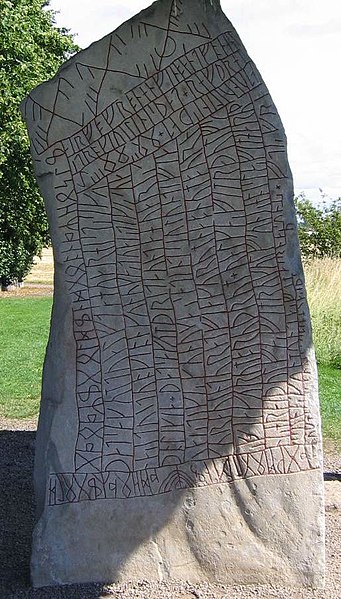In Norse mythology, Ask and Embla —man and woman respectively—were the first two humans, created by the gods. The pair are attested in both the Poetic Edda, compiled in the 13th century from earlier traditional sources, and the Prose Edda, composed in the 13th century. In both sources, three gods, one of whom is Odin, find Ask and Embla and bestow upon them various corporeal and spiritual gifts. A number of theories have been proposed to explain the two figures, and there are occasional references to them in popular culture.
"Hœnir, Lóðurr and Odin create Askr and Embla" (1895) by Lorenz Frølich.
A depiction of Ask and Embla (1919) by Robert Engels.
"Ask och Embla" (1948) by Stig Blomberg
Norse, Nordic, or Scandinavian mythology, is the body of myths belonging to the North Germanic peoples, stemming from Old Norse religion and continuing after the Christianization of Scandinavia, and into the Nordic folklore of the modern period. The northernmost extension of Germanic mythology and stemming from Proto-Germanic folklore, Norse mythology consists of tales of various deities, beings, and heroes derived from numerous sources from both before and after the pagan period, including medieval manuscripts, archaeological representations, and folk tradition. The source texts mention numerous gods such as the thunder-god Thor, the raven-flanked god Odin, the goddess Freyja, and numerous other deities.
The Tjängvide image stone with illustrations from Norse mythology
The god Loki, son of Fárbauti and Laufey
The Rök runestone (Ög 136), located in Rök, Sweden, features a Younger Futhark runic inscription that makes various references to Norse mythology.
Title page of a late manuscript of the Prose Edda written by Snorri Sturluson (13th century), showing the Ancient Norse Gods Odin, Heimdallr, Sleipnir, and other figures from Norse mythology







